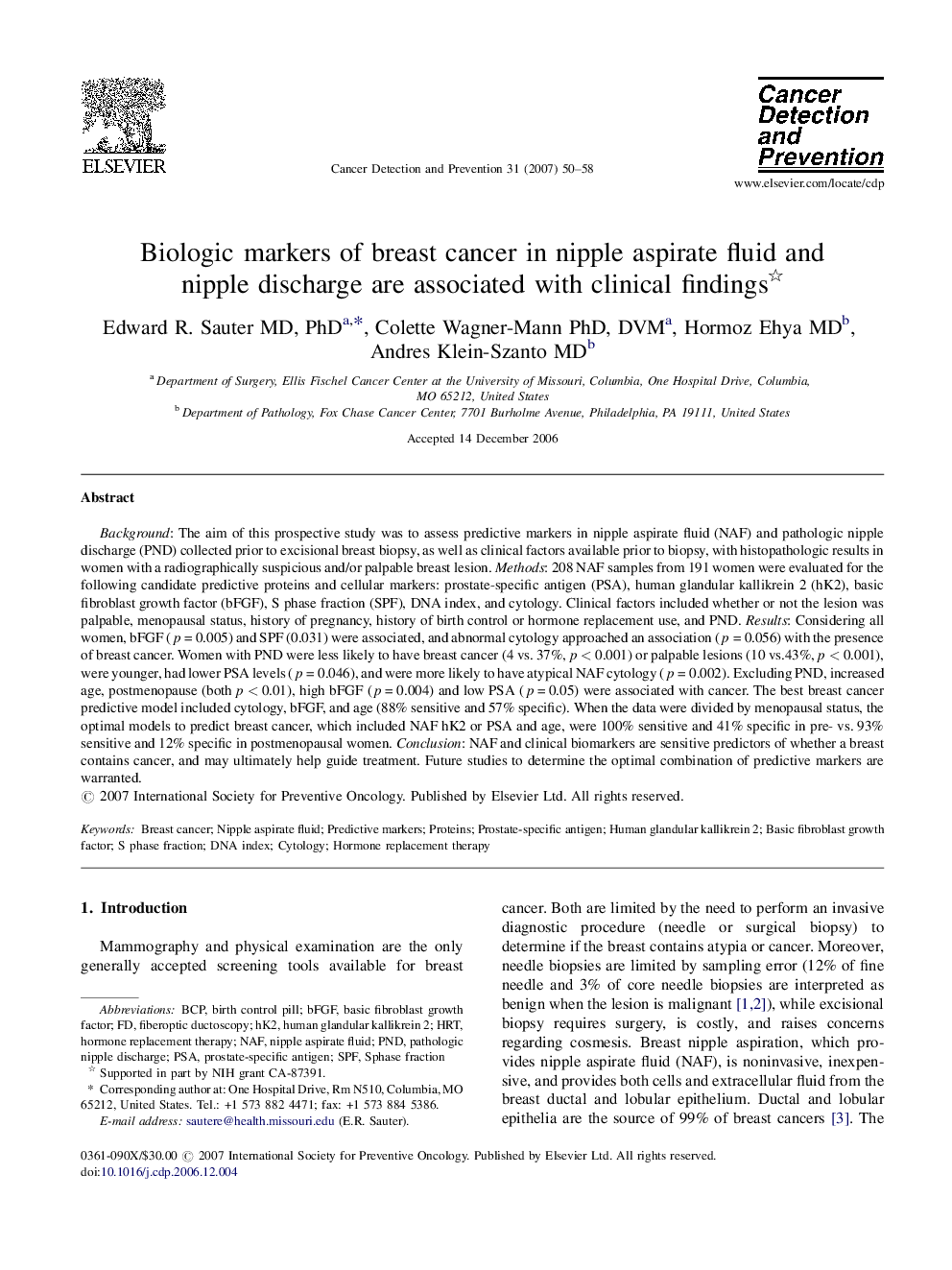| Article ID | Journal | Published Year | Pages | File Type |
|---|---|---|---|---|
| 2108623 | Cancer Detection and Prevention | 2007 | 9 Pages |
Background: The aim of this prospective study was to assess predictive markers in nipple aspirate fluid (NAF) and pathologic nipple discharge (PND) collected prior to excisional breast biopsy, as well as clinical factors available prior to biopsy, with histopathologic results in women with a radiographically suspicious and/or palpable breast lesion. Methods: 208 NAF samples from 191 women were evaluated for the following candidate predictive proteins and cellular markers: prostate-specific antigen (PSA), human glandular kallikrein 2 (hK2), basic fibroblast growth factor (bFGF), S phase fraction (SPF), DNA index, and cytology. Clinical factors included whether or not the lesion was palpable, menopausal status, history of pregnancy, history of birth control or hormone replacement use, and PND. Results: Considering all women, bFGF (p = 0.005) and SPF (0.031) were associated, and abnormal cytology approached an association (p = 0.056) with the presence of breast cancer. Women with PND were less likely to have breast cancer (4 vs. 37%, p < 0.001) or palpable lesions (10 vs.43%, p < 0.001), were younger, had lower PSA levels (p = 0.046), and were more likely to have atypical NAF cytology (p = 0.002). Excluding PND, increased age, postmenopause (both p < 0.01), high bFGF (p = 0.004) and low PSA (p = 0.05) were associated with cancer. The best breast cancer predictive model included cytology, bFGF, and age (88% sensitive and 57% specific). When the data were divided by menopausal status, the optimal models to predict breast cancer, which included NAF hK2 or PSA and age, were 100% sensitive and 41% specific in pre- vs. 93% sensitive and 12% specific in postmenopausal women. Conclusion: NAF and clinical biomarkers are sensitive predictors of whether a breast contains cancer, and may ultimately help guide treatment. Future studies to determine the optimal combination of predictive markers are warranted.
